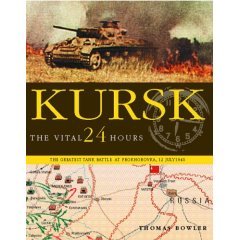In 1893 the United States experienced one of the greatest financial collapses in its history, and one of its results was Coxey’s Army. The panic of 1893 brought about the most severe economic depression the nation had yet experienced. All across the United States, businesses filed for bankruptcy, banks failed, factories and mines shut down, agricultural prices declined, and a large number of Americans were laid off from their jobs. The economic depression undermined the public’s confidence in the economy and caused social unrest among the nation’s unemployed. Several small groups or “armies” of the unemployed began to organize demonstrations and called on the government to take measures to relieve unemployment.
In 1894 Jacob S. Coxey, an Ohio businessman, social reformer, and Populist concerned about the families of unemployed Americans, began to advocate a vast program of public works financed by inflated currency to provide jobs for the unemployed. He demanded that Congress authorize the federal government to print and distribute $500 million in paper money to state and local governments to hire unemployed workers for road construction projects. Individuals hired to work on government-sponsored construction projects would receive at least $1.50 a day in wages. In spring 1894, Coxey planned to gather a large group of unemployed workers and “send a petition to Washington with boots on.” He envisioned an enormous grassroots march to the capital to promote his ideas.
On Easter Sunday, Coxey left Massillon, Ohio, with several hundred followers. The group became known as “Coxey’s Army” and drew nationwide attention. Other “armies” sprang up about the country and headed for Washington hoping to persuade Congress to authorize federal programs that would provide work. Conservatives feared that the demonstrators would swell to more than 100,000 people and foment a revolution, but their fears were exaggerated. Of all the armies that set out for Washington, Coxey’s Army was the only group to actually reach the nation’s capital.
When Coxey’s Army arrived in Washington on May Day, it numbered only 500 instead of the threatened 100,000. The marchers found armed police lining the streets and blocking the approaches to the Capitol. When Coxey and two others tried to reach the Capitol, the police clubbed and then arrested them for trespassing. Coxey’s followers were dispersed by club-wielding police and detained in makeshift camps. Coxey was sentenced to 20 days in jail. The callous treatment of Coxey and his supporters convinced many unemployed Americans that the government had little interest in their plight. Although Coxey’s Army and others like it were disbanded, public discontent over the government’s response to the economic crisis remained. Ironically, the essence of Coxey’s major idea was later implemented during the Great Depression of the 1930s.
See also CURRENCY issuE; People’s Party.
Further reading: Carlos A. Schwantes, Coxey's Army: An American Odyssey (Lincoln: University of Nebraska Press, 1985).
—Phillip Papas
Crane, Stephen (1871-1900) novelist, journalist Realistic novelist Stephen Crane was born on November 1, 1871, in Newark, New Jersey, the 14th and last child of Jonathan Townley Crane, a Methodist minister and writer




 World History
World History









